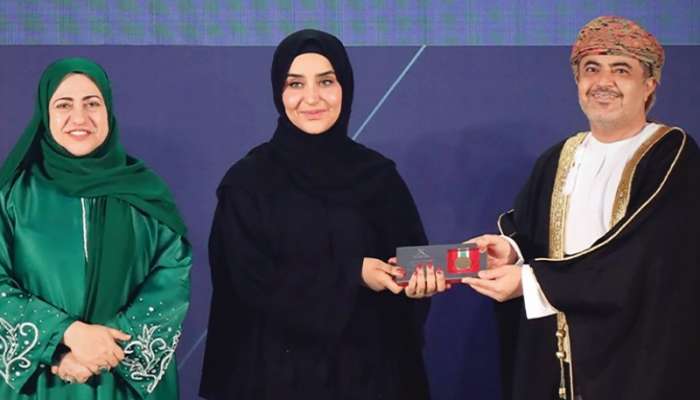

Muscat: Higher education in the fourth industrial revolution is an exciting opportunity which can potentially transform society for the better.
The fourth industrial revolution (4IR) is digital revolution in the industrial sector, where huge advancement in technologies has been experienced.
Future workplace
Powered by artificial intelligence, big data, and the internet of things it is expected to transform the workplace from tasks based characteristics to the human-centred characteristics.
Dr Mashael Awadh Al Saiari, lecturer at the University of Technology and Applied Sciences, led a key project about the ‘Role of the technologies of the fourth industrial revolution (4IR) in achieving the requirements of sustainable development in higher educational institutions in the Sultanate of Oman’.
It was among the winning innovative projects at the ninth National Research Award, organised by the Ministry of Higher Education, Research and Innovation, recently.
Dr Mashael and her team won in the education and human resources field in the Young Researcher’s category.
Dr Mashael said: “The study dealt with the higher education sector in the fourth industrial revolution and how sustainable development goals were achieved. Higher educational institutions have a fundamental role in the development of society. Studies and reports showed that the technologies of the fourth industrial revolution have made a significant contribution in achieving sustainable development in higher education institutions.”
Paradigm Shift
The fourth industrial revolution digitises and vertically integrates processes across the entire organisation. It also integrates horizontally all the internal processes from suppliers to customers. Put simply, it epitomises a paradigm shift from ‘centralised’ to ‘decentralised’ production, whereby machines no longer simply ‘process’ the product, but they are seamlessly integrated into the information network, the business partners and customers. In other words, the idea of consistent digitisation and linking of all productive units in an economy is emphasised in the fourth industrial revolution age.
Dr Mashael said: “The impact of the technologies of the fourth industrial revolution was not limited to the global economy, manufacturing and production processes only, but its effects extended to all social, human and service aspects. The study aimed to reveal the role of the fourth industrial revolution and its technologies in achieving sustainable development goals in higher education institutions in the Sultanate of Oman.
“It also aimed to identify the reality of employing these technologies in higher educational institutions. The study used a qualitative approach in which interviews were conducted to collect data. The study sample consisted of 10 leaders from government and private higher education institutions.”
As for the findings, Dr. Mashael said: “The results showed the importance of these technologies. According to the study sample, the degree of using these technologies in higher education institutions ranged from excellent to medium. A number of administrative, technical and human challenges were faced while employing these technologies.”
Solutions to Challenges
Through the study, Dr. Mashael and her team came up with suggestions to solve these challenges, such as building partnerships with the community, attracting expertise, training students and academic staff, and improving infrastructure.
The study also suggested that there is a necessity of developing educational policies, enabling students and professors of required skills to use these technologies.
Higher education remains unchanged since the past couple of centuries. Today, students still assemble at a scheduled time and venue to listen to the wisdom of scholars and lecturers.
Given the fourth industrial revolution, a new form of a university is emerging that does teaching, research and service in a different manner.
New form of University
This university is interdisciplinary, has virtual classrooms and laboratories, virtual libraries and virtual teachers. It does upgrade educational experience and technologies certainly augment it.
The research study was produced in the Journal of Arts & Social Sciences, published by the College of Arts and Social Sciences at Sultan Qaboos University.
Besides Dr Mashael, the research team comprised Prof Dr. Wajeha Thabit Al Ani, Dr. Khalaf Marhoon Al Abri, Dr. Abdullah Mubarak Al Shanfari, and Dr. Hafidha Suleiman Al Barashdi.
Dr. Mashael said: “Winning the award is a great honour for us. It will support us as researchers to spend more effort in scientific research in a way that contributes to the development of our country.”